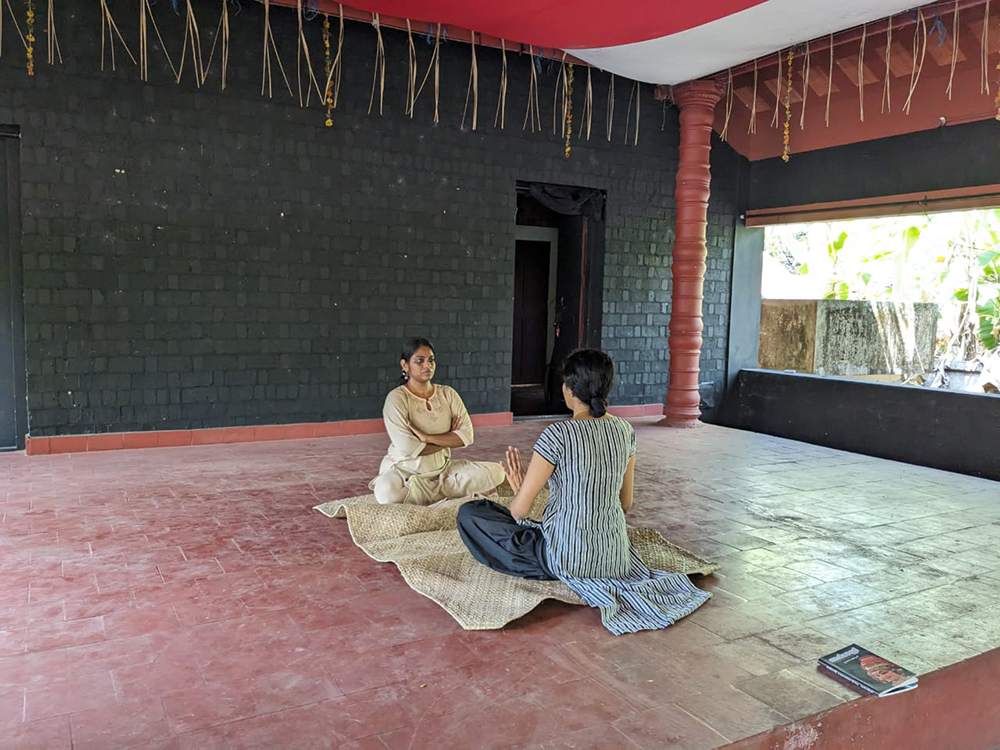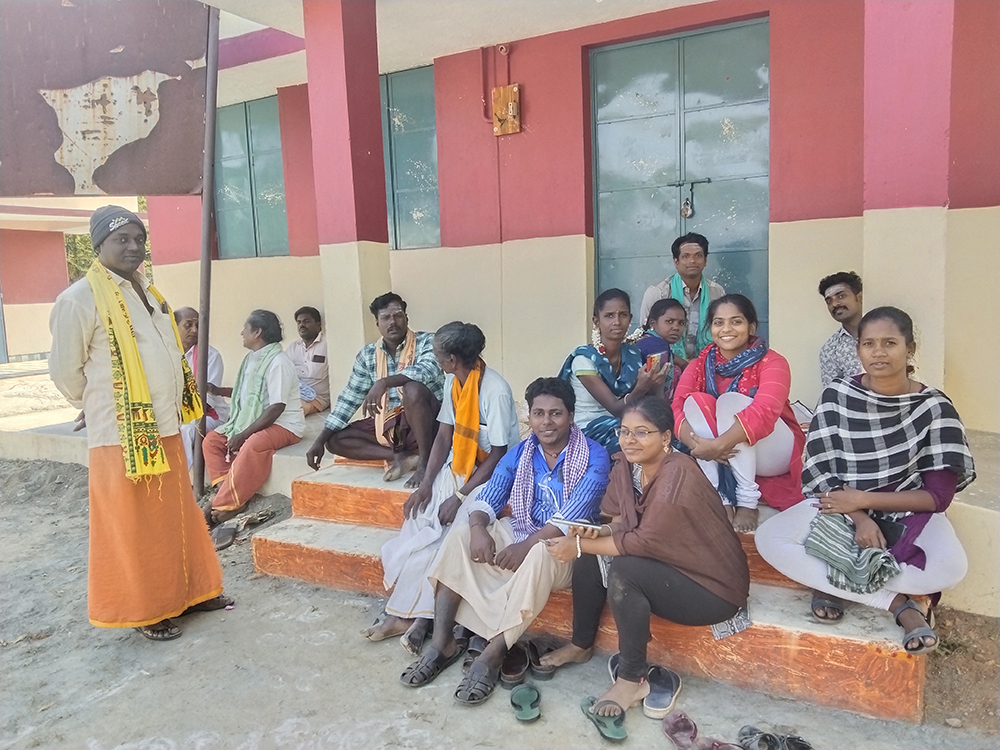Parshathy Nath
Project Period: One year and six months
This Foundation Project implemented by IFA will enable the creation of a theatrical production centred around the actor and the epic character Shoorpanakha. Parshathy Nath will be the Coordinator for this project.
Parshathy Nath is a Thrissur-based theatre maker. With a background in Mohiniyattam, Bharatanatyam, Kudiyattam, Carnatic music and Kalari, Parshathy has been a participant at theatre-making workshops at Adishakti Theatre Laboratory in Auroville, Natanakairali in Irinjalakkuda and Ninasam in Heggodu. She has been part of 14 professional theatre productions and has worked with prominent directors in Chennai, Puducherry, Udupi, Heggodu and Bangalore. She has also been the recipient of the INLAKS Theatre Award in 2021. Given her experience, she is best placed to be the Project Coordinator of this Foundation Project of IFA.
While devising a theatrical work in Adishakti, Parshathy felt a strong need to express herself in her own voice, outside of the moulds of classical music and dance training that she was until then steeped in. For this, she chose to inhabit the character of Shoorpanakha and created a work-in-progress piece centred around her. However, being a character who does not instinctively occupy the classical performative conventions or conventional tropes of classical or modern drama, Shoorpanakha seemed to constantly elude her. From the feedback on this work that she received from audiences, Parshathy realised that there was essentially a tussle between the character and the actor. The existing narratives and the frameworks of forms such as Koodiyattam and Yakshagana that Parshathy had trained in were insufficient to bring Shoorpanakha within their ambit. Therefore, the work-in-progress piece left Parshathy alienated from the character. Taking this previous work as a point of departure, Parshathy, in this work intends to explore a new performance language to encounter and converse with the character of Shoorpanakha.
Both traditional and modern theatre have extensively experimented with the women characters of the epic texts. Characters such as Sita, Draupadi and others have been given new interpretations and new voices through theatrical and literary works. However, similar works on Shoorpanakha are few and far between. Parshathy observes how Sita and Draupadi are called nayikas, while Shoorpanakha is called ‘wild’. What makes us call her ‘wild’? How do we define wild and cultured? Can Shoorpanakha offer us an alternative, anti-anthropocentric outlook towards nature, desire and war? Does her caste, class and forest-dwelling asura status play a role in shunning her away even from the feminist lens of today? If so, what is at play here? Is it the cultural/caste/class milieu of Shoorpanakha that puts her in the fringes of even the critical, subversive discourse? These are some of the questions and themes Parshathy would like to explore in this solo exploration.
In terms of performance, Parshathy sees this as an experiment and a travel through unfamiliar terrains to meet Shoorpanakha midway. The work will explore this actor-character dichotomy in an attempt to push the practice of theatre itself, trigger the audience to change their notions of performativity and break conventional methods of storytelling. It also seeks to blur the boundaries between dance, music and drama.
The preparatory phase for the performance involves research and training. As part of the research, Parshathy will inquire into performance traditions in India that have tried to tell the story of Shoorpanakha differently. In addition to this, she also wants to look beyond written texts to see if Shoorpanakha exists in other forms in oral traditions. As a process of preparing her body, she intends to undergo training in forms such as Gaana, Oppari, Kattaikkuthu, Parai playing and oral storytelling and singing traditions from Kerala that will open her body to new idioms and expressions. With these new expressions, she intends to see Shoorpanakha as a new conceptual framework that can potentially provide us with a new paradigm to understand society, rules, freedom, mind, body, spirit and ecology. As a practitioner, Parshathy hopes that this work will enable her to undergo a metamorphosis through rigorous unlearning that will enrich the repository of her acting vocabulary. It will also result in exciting discussions about how an actor prepares to become a character, and maybe trigger new pathways in the pedagogy of actor training.
The outcome of the project will be the performance. Parshathy plans to showcase the performance in Bangalore, Chennai and Thrissur. The Project Coordinator’s deliverables to IFA along with the final reports will be photographs and video documentation of the training sessions, rehearsals and the final performance.
This project suitably addresses the broad framework of IFA's Arts Practice programme, and the Productions category in particular. Artists across India, over the past decade, have developed significant theatre and literary works on Shoorpanakha. IFA hopes that this production, by attempting to bring to the fore the vulnerabilities and possibilities in the bodies of both the character and the actor, would be able to trigger new conversations not just around the actor-character but also around ‘given’ and ‘received’ frameworks of performance itself.
IFA will ensure that the implementation of this project happens in a timely manner and funds expended are accounted for. IFA will also review the progress of the project at midterm and document it through an Implementation Memorandum. After the project is finished and all deliverables are submitted, IFA will put together a Final Evaluation to share with Trustees.
This project is made possible with support from Sony Pictures Entertainment Fund.


